Fighting Back Against Outdoor Resort Companies
Will one of our biggest ski mountains go indie? Plus, the cost of dirtbagging, confusion at Yosemite (and everywhere, really), a propane upgrade, a POEM, fire followers, and lots more!
howdy
A few weeks ago, I spent a few days up in beautiful British Columbia for some skiing at Whistler.
If you’ve been reading for a while, you know this is a fairly big leap in my “Learning How to Ski as an Adult” journey, which really only began in earnest about five years ago. Skiing has become a new way for me to get outside (and get some sunshine) in the Northwest’s dark winter months. The trails up at Whistler were definitely more difficult than the runs around Mount Hood I’m more used to, but I did manage to get a solid few days of skiing up there.
One thing I noticed in addition to the steeper runs and spectacular mountain terrain? The cost. The last day I wanted to hit the slopes, a lift ticket for the day was over $300 Canadian. Now, nobody considers skiing to be an affordable sport. If there’s a single affordable aspect about it, I have yet to find it. And yeah, Whistler is not exactly known for being a budget ski destination, but what I really noticed there was the constant pushing and upselling of the subscription-based Epic Pass.
*******
Want to support but can’t spring for a subscription? How about spotting me a coffee instead?
*******
If you’re someone who heads to some of the bigger ski resorts on the regular, you already know about this deal—the resorts tend to “dynamically price” day passes (in other words, jack up prices) to push people into the more upfront-expensive season passes. Usually there are some artificial perks and benefits that make the pass seem like a deal—at Whistler, it was tough to find anything with a price tag on it that wasn’t cheaper for the beloved Epic Pass holders.
Of course, because social media is always three steps ahead of us, while I was in Whistler, this came up on my Instagram feed:
Ski areas didn’t used to be this way, and thankfully, there are some places where people are starting to push back against the giants. Just outside of Bend, Oregon, one the largest ski areas in the United States—Mount Bachelor—announced it would be up for sale in August. Some locals in Bend joked on a forum about pitching in a few bucks to go in on a group rate. Within two days, there were thousands of messages of support, and now, the joke might become a reality.
Mt. Bachelor Community, Inc. is the newly-formed cooperative aiming to buy the ski resort from its current owner, hoping to keep prices down yes but primarily to make sure the ski area keeps in line with what the local community wants and needs. There is no word yet on how the efforts are going, but there are some built-in advantages the local group has—including the fact that the ski area operates on public Forest Service land, so a bigger conglomerate couldn’t build the condos and hotels and shops that drive a big chunk of their revenue.
There’s a great feature on the folks involved in the New York Times (unlocked), as well as some other strategies smaller ski areas are using to fend off the giants.
I also love that this is basically the plot of every 80s ski movie.
Subscriber Section
If you’re a paid subscriber, not only do you get instant access to newsletters as they publish and the ability to comment, but you also have the ability to AMA, anytime! Ask me anything about the outdoors, writing, travel, whatever, and there’s a chance I’ll answer it right here in the newsletter for ya.
In this issue, I got this note from future fellow author Josh Jackson, who writes:
Thanks for the kind words, first of all! I’m glad this hodgepodge of outdoor and outdoor-adjacent info is at the very least interesting.
I don’t read a lot of fiction, but the last book I just finished
was Beautyland by Marie-Helene Bertino, and I absolutely loved it. It’s about an alien sent to observe earth through the body of a girl in suburban Philadelphia, and she has to send her observations back to her home planet via a fax machine. I found it incredibly sweet, funny, and sad in a heartwarming way.
I’ve also been feeling very nostalgic for Los Angeles (and going through a big film noir phase), so I’ve started reading Raymond Chandler’s Philip Marlowe books. I finished Farewell, My Lovely late last year and didn’t get into it quite as much as I did with The Big Sleep, but oh man Chandler can write.
For poetry, I’m currently making my way through the Complete Poems of Philip Larkin bit by bit, but some of my favorite poetry books from the past few months are More Sure by A. Zachary Light, Boy on the Step by Stanley Plumly, What Narcissism Means to Me by Tony Hoagland, and Fruit by Bruce Snider, who I was lucky to study under when I got into the Napa Valley Writers Conference last year.
The poetry world is pretty archaic in terms of publishing—most poetry organizations won’t even consider publishing something that has already been shared, even if it’s just in something ephemeral like an Instagram story. Personally I think that is very 20th century thinking, and kind of surprising for an art form that doesn’t make anyone money and very few people even care about. I also think it’s really dumb, to be honest. One of the reasons I was able to publish books in the first place was because editors saw my work online and wanted to work with me.
So in that spirit, here is a poem I started writing in 2022 and kind of put to bed last year. Hope you dig!*
* all of the text of the poem should be right-justified in this poem, but Substack won’t let me do that. So just use your imagination.
Grasping That rough rope tore my hands, wore grooves in my palms They were canyons chipped by wind, first a crack, then miles wide, ancient, deserving of a name or air- conditioned visitor center, tourists snapping selfies, mailing postcards that wished you were here How impossible to let go, yet also how simple
The Big Story
Something to talk about
Dirtbagging is Expensive

When you think about a PCT thru-hiker, you’re probably romanticizing the image a lot. Sure, there’s a big ‘dirtbag’ vibe involved (mostly from the actual dirt and sweat), but planning and executing six-ish months on a very long trail takes a ton of planning, organization, effort, and—yes—cash money. The thru-hiker Halfway Anywhere has been publishing a huge data set from the previous year’s PCT thru-hiking class since 2013, and the 2024 data shows a few interesting trends.
First, the cost of a thru-hike on the PCT is on the rise—in 2024, PCT thru-hikers spent an average of $10,149 during their time on the trail. This amount is just slightly lower than the 2023 average but almost double the average amount first reported in 2015. Inflation, amirite? The average age of hikers has risen, too. In 2013, the average age of respondents was 26 years old, whereas 2024 saw that number climb to 38 years old.
If you’re into data, you can see the full results of this year’s survey here. More data will be released and analyzed throughout the year, but so far my favorite fact is that nearly 40% of respondents found the time to hike the PCT by quitting their jobs. Also, hiking the PCT ended relationships for 4.8% of respondents, but also gave 8.2% new relationships. Happy Valentine’s Day, btw!
Your Parks
Your Places
What If?
In Portland, we are blessed to have a terrific system of parks in the city as well as an urban growth boundary that puts tight controls on sprawl that would otherwise quickly eat into the nearby farmland and forests. But we also are just outside the Columbia River Gorge National Scenic Area, a protective designation made by Congress in 1986.
The non-profit Friends of the Columbia Gorge put together a retrospective post about the impact of that legislation for a recent email newsletter, and also used some computer generated images to show what some of the Gorge’s most iconic scenery might look like if that bill were never passed.
Dune Thug-gy?
Hey, just wondering … did one of your buddies brag about a killer off-road trip on a sand dune in the deserts of eastern California sometime in late December? You might want to get in touch with the NPS Investigative Services, because they’re looking for this person (OK let’s face it, it’s gonna be a guy).
Around this time, rangers in Death Valley National Park reported someone drove into a protected area of the Eureka Dunes, putting two miles of tire tracks on the dunes and damaging or destroying several protected plants. This action carries fines of up to $25,000 and a potential prison sentence of six months, but the rangers have not yet found the culprit.
Park Superintendent Mike Reynolds noted that there are areas set aside for off-road vehicles that are very close to the Eureka Dunes and this person could have easily enjoyed off-roading while staying within the boundaries of the law.
We’re Having Some Reservations

As part of President Trump’s idiotic genius move to cause chaos and confusion who the hell knows drain the swamp?, there has been a blanket hiring freeze across all federal agencies. Much in the same way you run into some complicating issues when you, say, decide to hammer a nail in your house by running over the entire structure with a bulldozer, outdoor agencies are raising some red flags with this policy. For instance, outdoor seasonal employees can’t get or prepare for their jobs, which include very important positions like wildland firefighters all across the country and seasonal rangers, who are often critical employees during high-visitation seasons in national parks and other outdoor areas. Staff at Yosemite National Park have already announced that even they don’t know if the effective summer reservation system is coming back.
The effects of this will likely ripple throughout public lands. Democratic and Independent senators from Oregon, New Mexico, Washington, and Maine were quoted as saying, “Without seasonal staff during this peak season, visitor centers may close, bathrooms will be filthy, campgrounds may close, guided tours will be cut back or altogether cancelled, emergency response times will drop, and visitor services like safety advice, trail recommendations, and interpretation will be unavailable.”
Sounds great!
Tech Talk
Gadgets, Technology, and Hype
A Propane Problem
California recently passed a ban on single-use propane canisters that goes into effect in 2028, but some companies are already making adjustments to the market. You can buy a refillable / exchangeable propane container from Little Kamper at stores in most states already, and soon, Gear Junkie reports, you’ll be able to purchase and exchange the canisters at more than 50 locations throughout the country.
Leafing Out
Plants!
Eye Out for Fire Followers
While the winter rain levels don’t look like they’re going to be fueling any major superblooms in the desert in Southern California, conditions may be ripe for some of nature’s most moving metaphors in the face of destruction and negativity: fire followers.
“Fire followers” is the name of a type of plant that—as the name suggests—follows a fire. Many plants in the chaparral and sage scrub have evolved to only germinate and grow after a wildfire comes through, and this winter and spring will be a great chance to see things like fire poppies, whispering bells, mariposa lilies, and a whole bunch of lupines. TreePeople has a great primer post on their Instagram account, which also shows off the cute-sounding poodle-dog bush. In my book Day Hiking Los Angeles, I describe the unique scent of poodle-dog as akin to a row of Venice boardwalk pot shops. I like the smell, but I get that it’s not for everyone. Just don’t touch, though—its hairs and oils can give you a really nasty rash very quickly.
One More Thing
Oh yeah, before I go …
I’ll keep this quick because oh wow this is a long newsletter (bang for your buck!) but you know I sometimes like to share some stuff here on web culture, AI, and other stuff to mix it up a bit. I have some strong feelings about AI—especially when we’re talking about using it for creative purposes—so I’ll just leave this interesting story from 404Media (love that site) about a study from Microsoft that found that AI use made human cognition on higher level tasks “atrophied and unprepared.”
Basically, you know those people who can only navigate somewhere by staring at their screens and are completely lost and befuddled when they can’t use them? This study kind of says that AI use will make you like that for whatever you’re using it for. So, you know, delete it.
Paper maps for life.
Until next time,
Happy Trails ,

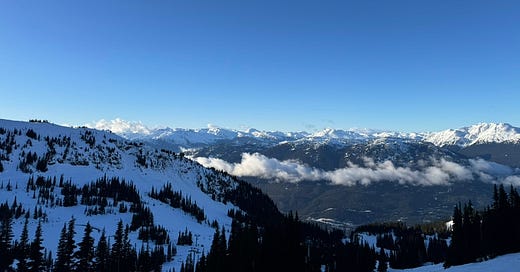



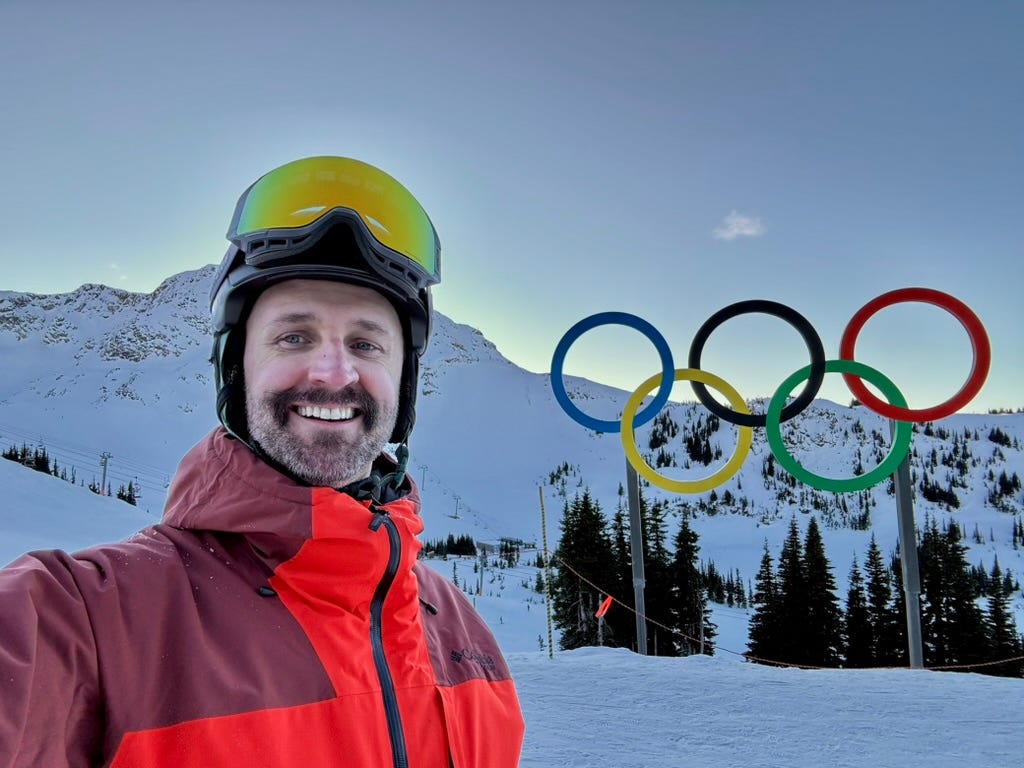

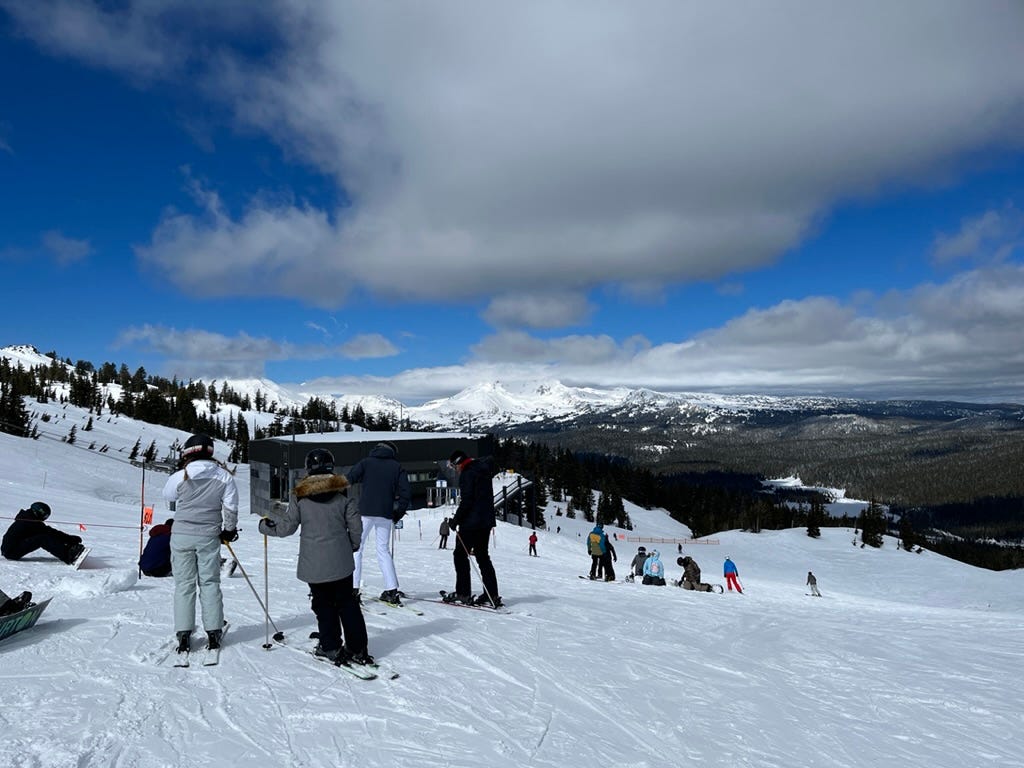

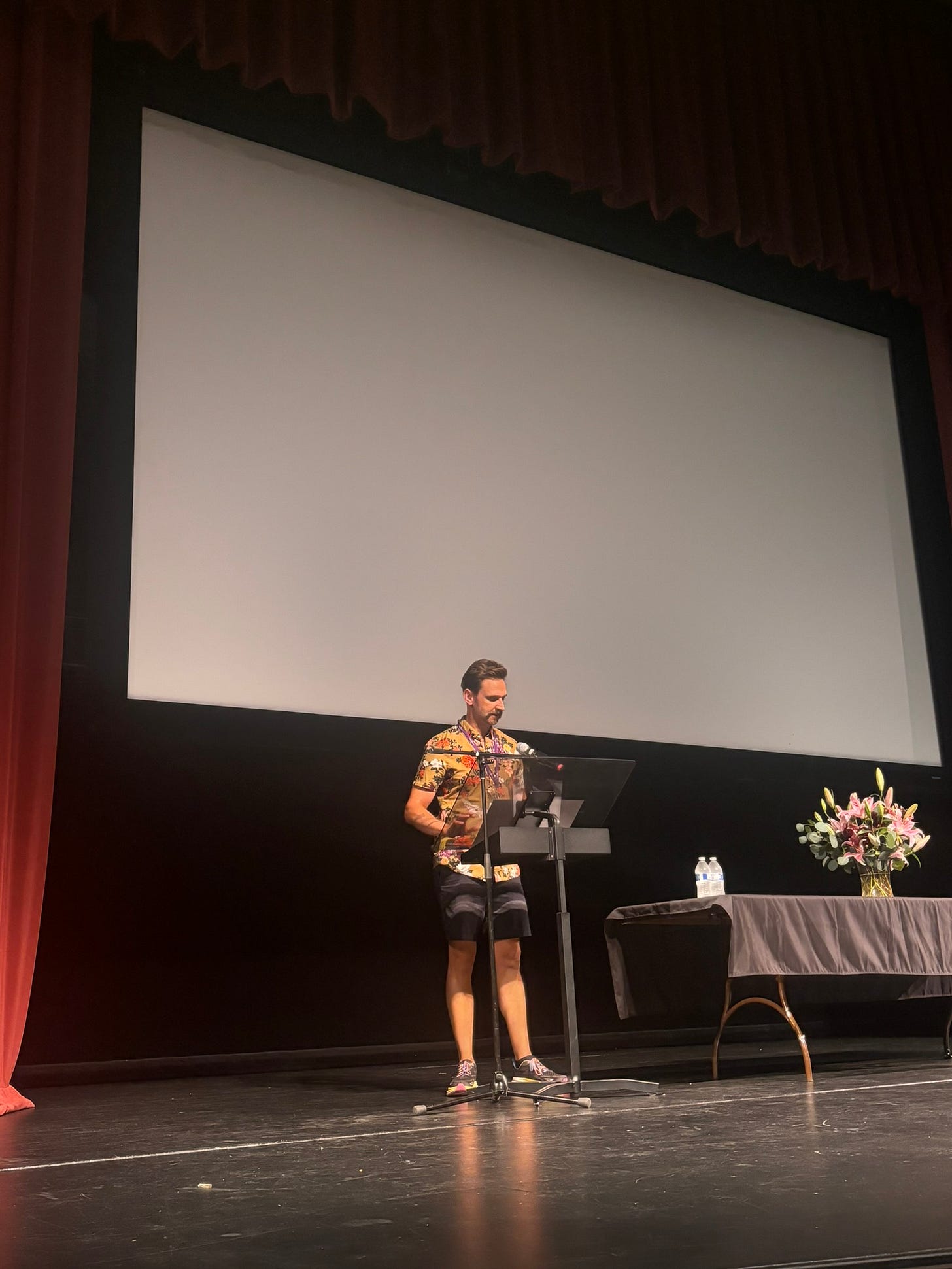
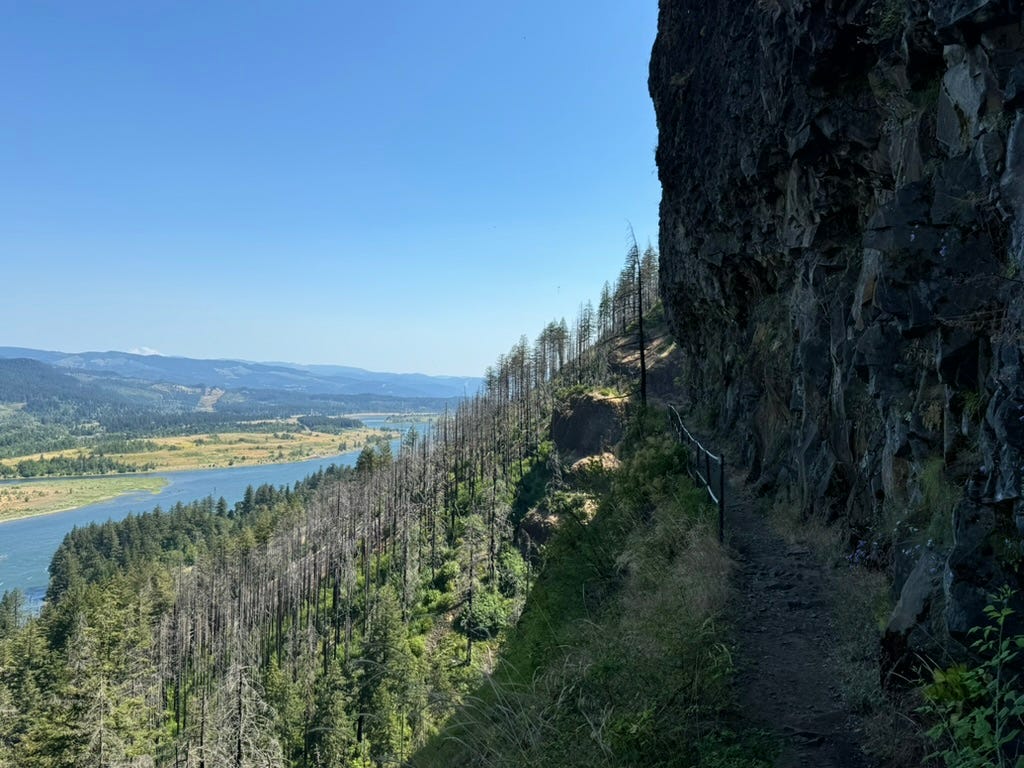
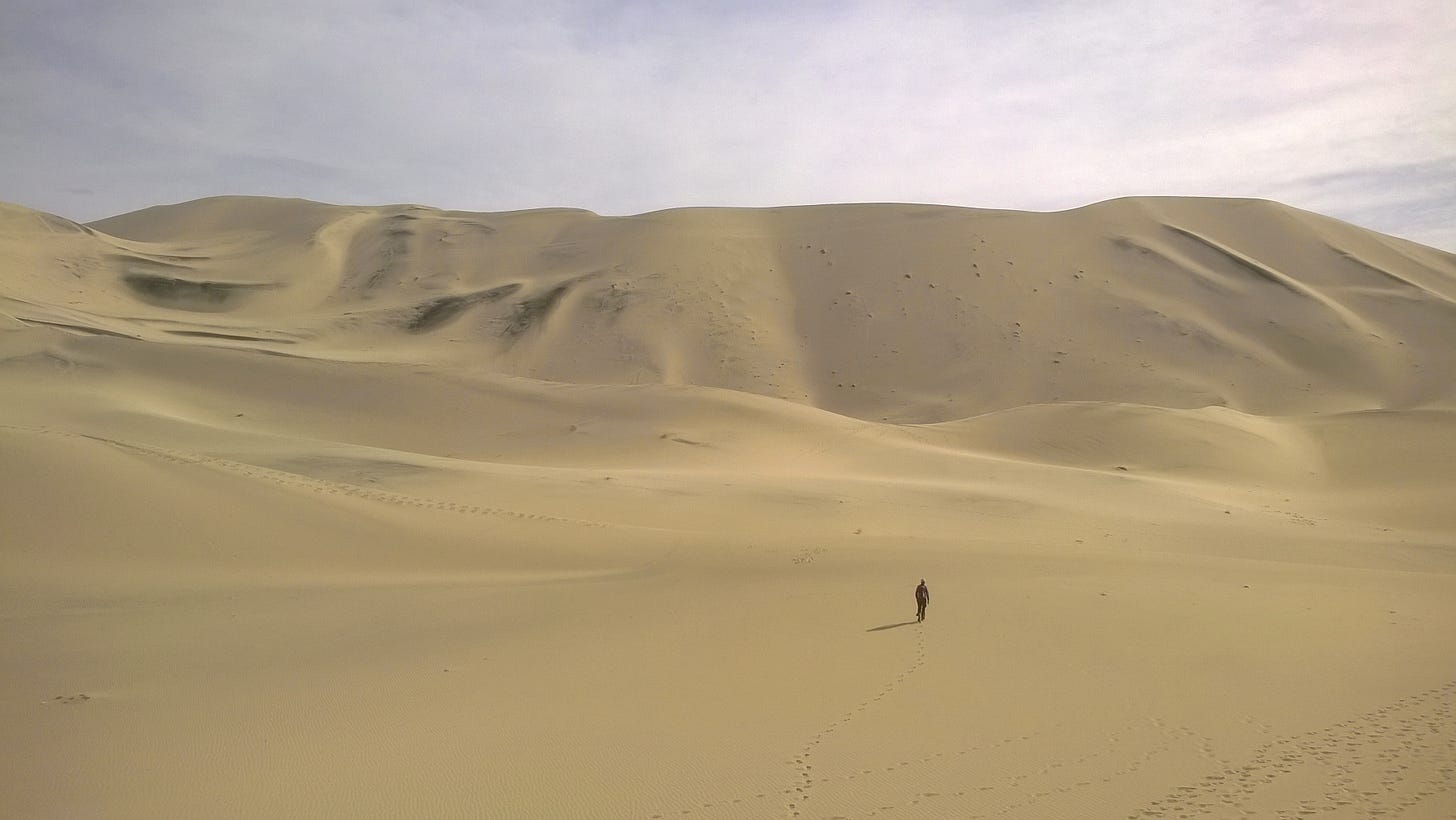
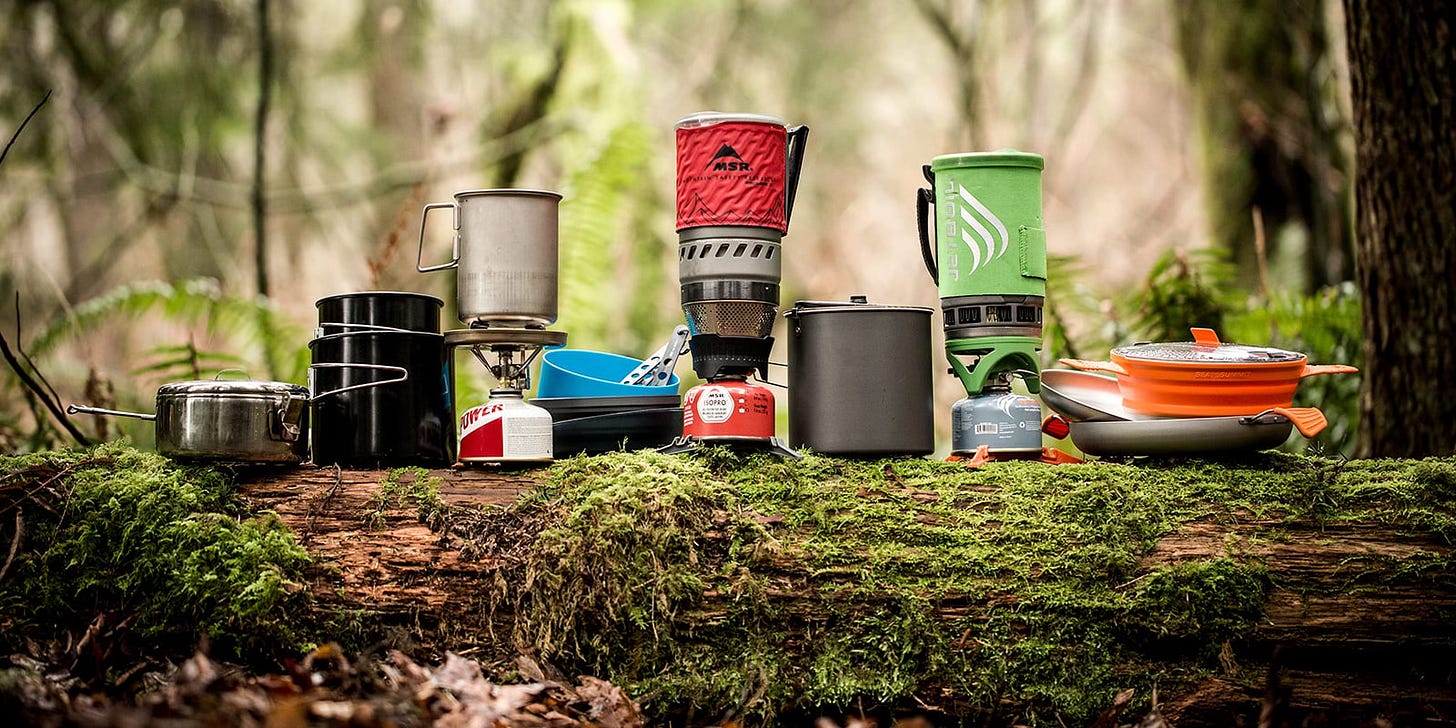


Paper maps for life, indeed!
Thanks for the great book recs! Beautyland sounds intriguing and I'll be looking into it further today. Love me some Chandler...I'm sure you've read the other famous Raymond (Carver)...but if not, I'd strongly recommend!
And thanks for the poem. "Wore grooves in my palms.." what a lovely line.
I am dreading what will probably happen to our public lands. Backpackers like me can escape into the back county but we need trailhead facilities, rangers, and a functioning permit system.
And as a Wilderness Travel Course instructor, paper maps FTW! While we are starting to introduce our students to GPS apps, we will always teach map and compass navigation.